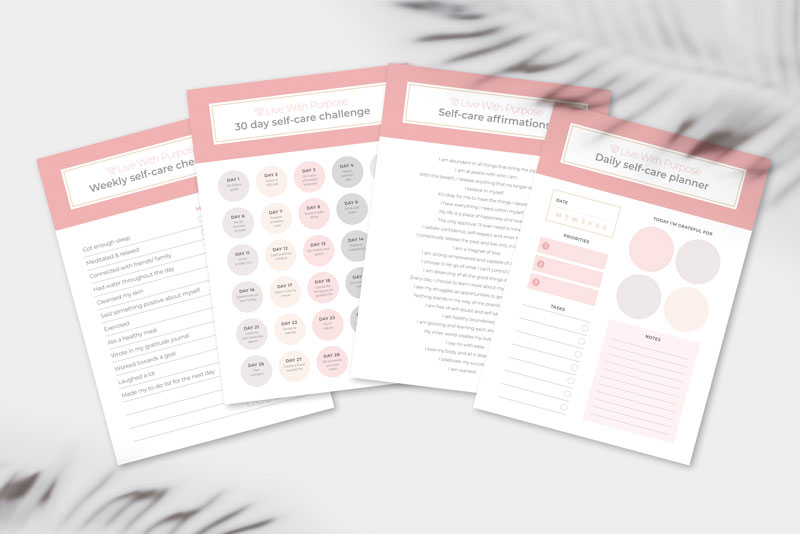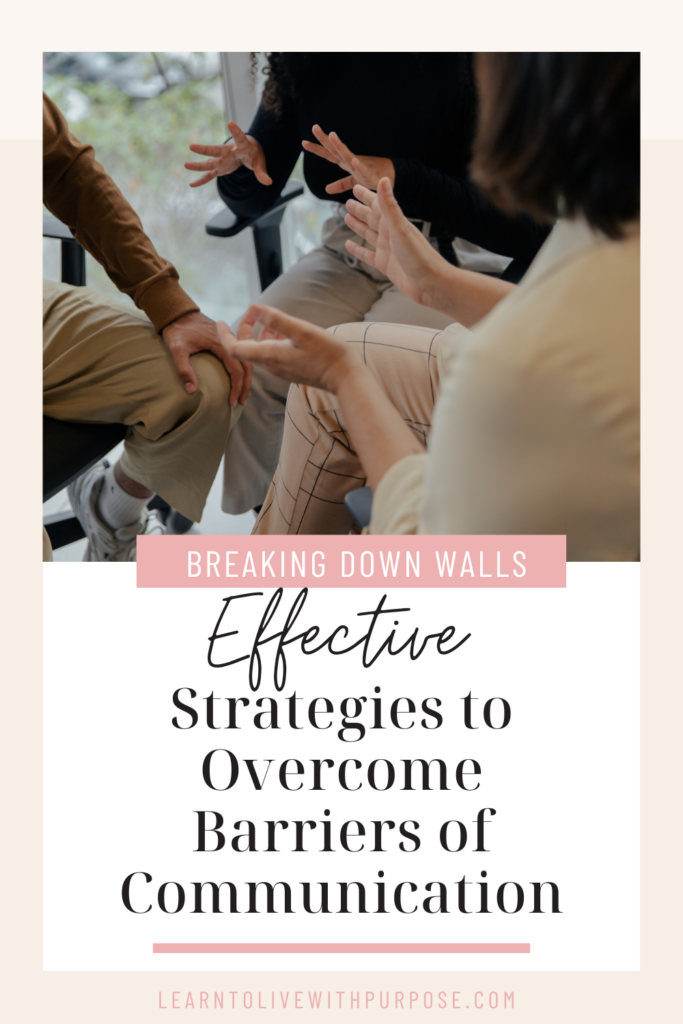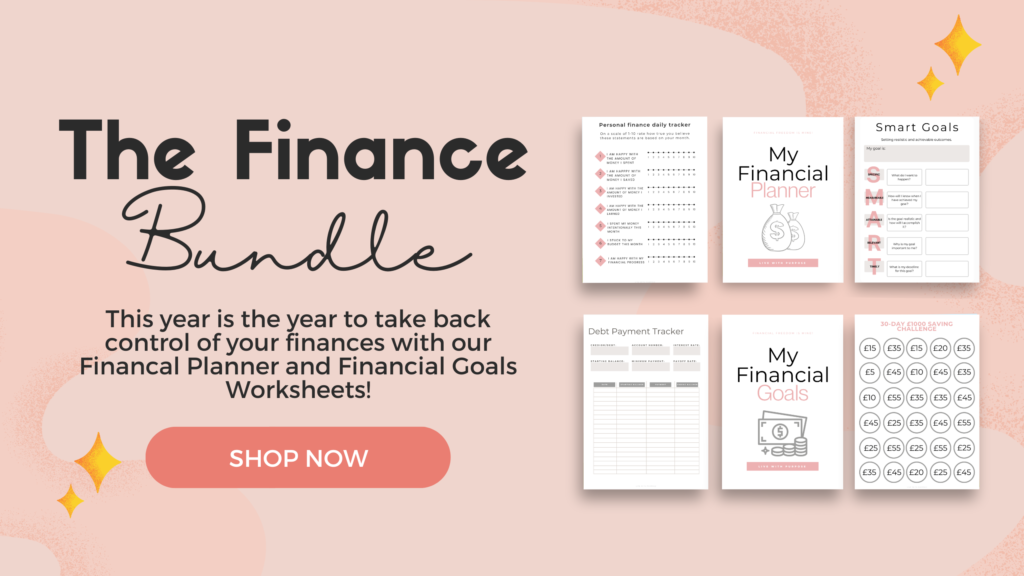
Communication is the lifeblood of relationships, both personal and professional. However, barriers to effective communication can hinder the exchange of ideas, lead to misunderstandings, and strain relationships. 🫠
In this comprehensive guide, we will explore common barriers to communication and provide practical strategies to overcome them.
Whether you’re navigating workplace dynamics, fostering better connections with friends and family, or seeking to improve your overall communication skills, these insights will help you break down the walls that impede effective communication. 🙂
Let’s get started!
Understanding Barriers to Communication:
1. Lack of Clarity and Precision:
One of the fundamental barriers to effective communication is a lack of clarity. Vague or imprecise messages can lead to confusion and misinterpretation. It’s essential to articulate your thoughts clearly, using precise language and providing relevant details to ensure your message is accurately received. 😊
2. Emotional Barriers:
Emotional barriers, such as stress, anxiety, or strong emotions, can impede communication. When individuals are emotionally charged, they may struggle to express themselves clearly or be receptive to others. Managing emotions and creating a calm environment are crucial for effective communication.

3. Cultural and Language Differences:
Cultural and language diversity can create barriers to communication. Differences in language proficiency, communication styles, and cultural norms may lead to misunderstandings.
To overcome this barrier, it’s essential to foster cultural awareness, be patient with language differences, and use clear and straightforward language. 😊
4. Noise and Distractions:
Physical and environmental factors, such as noise and distractions, can interfere with communication. Whether it’s background noise, technological disruptions, or a busy environment, minimising distractions enhances the clarity and effectiveness of communication. 👂

5. Assumptions and Stereotypes:
Preconceived assumptions and stereotypes can create barriers by influencing how we interpret messages. Avoid making assumptions about others’ perspectives or intentions. Instead, approach communication with an open mind, seeking to understand diverse viewpoints without judgment. 🧠
6. Lack of Feedback:
Communication is a two-way process, and the absence of feedback can be a significant barrier. Encourage open dialogue, actively seek input from others, and provide constructive feedback. Creating a feedback loop ensures that messages are received and understood and not going in one ear and out the other.

7. Poor Listening Skills:
Ineffective listening is a pervasive barrier to communication. When individuals fail to actively listen, they miss important details, leading to misunderstandings. Improving listening skills involves giving full attention, avoiding interruptions, and practicing empathy to understand the speaker’s perspective. 😊
8. Power Dynamics and Hierarchies:
Unequal power dynamics or hierarchies within relationships or organisations can stifle open communication. Those in lower positions may feel hesitant to express their thoughts or concerns. Fostering an inclusive and open communication culture helps overcome these power-related barriers. 🫂
Strategies to Overcome Communication Barriers:
1. Prioritise Clarity in Communication:
- Articulate Clearly: Use clear and concise language when conveying your message. Avoid jargon or overly complex terms that may confuse the listener.
- Provide Context: Offer relevant background information to ensure your message is fully understood. Context helps the listener connect the dots and interpret your message accurately.
- Encourage Clarification: Create an environment where others feel comfortable seeking clarification. Encouraging questions can help address potential misunderstandings. 🤗

2. Emotional Intelligence and Regulation:
- Self-Awareness: Develop an understanding of your own emotions. Recognise how emotions may impact your communication style and be mindful of potential emotional triggers.
- Empathy: Practice putting yourself in others’ shoes. Empathetic communication involves understanding others’ perspectives and responding with sensitivity.
- Stress Management: Learn effective stress management techniques, such as deep breathing or mindfulness, to regulate emotions during challenging conversations.
Want to learn more about emotional intelligence? Check out this blog here: How to practice emotional regulation – tips for adults on how to cope
3. Cultural Sensitivity Training:
- Cultural Awareness: Educate yourself about different cultures, communication styles, and customs. A culturally aware approach fosters understanding and respect.
- Language Simplification: In multilingual settings, use simple language and avoid idioms or slang that may not translate well. Visual aids can also help enhance understanding. 🤗
- Inclusivity: Create an inclusive environment that values and celebrates cultural diversity. Encourage open discussions about cultural differences to promote understanding.
4. Create a Distraction-Free Environment:
- Choose Appropriate Settings: Select quiet and conducive environments for important conversations. Minimse disruptions by choosing a location with minimal background noise.
- Digital Etiquette: In digital communication, turn off notifications and ensure a stable internet connection. This helps maintain focus during virtual meetings or discussions. 🧑💻
- Active Presence: Demonstrate active presence by giving your full attention to the speaker. Make eye contact and eliminate distractions to signal that you are fully engaged.

5. Challenge Assumptions and Stereotypes:
- Open-Mindedness: Approach conversations with an open mind, avoiding preconceived notions. Be willing to challenge your assumptions and consider alternative perspectives.
- Promote Diversity and Inclusion: Actively promote diversity and inclusion in your personal and professional spheres. Encourage dialogue that challenges stereotypes and fosters a culture of acceptance.
- Educate Others: Share information that challenges common stereotypes. Education is a powerful tool in breaking down barriers and promoting understanding. 📖
6. Establish a Feedback Culture:
- Encourage Open Dialogue: Foster an environment where open dialogue is encouraged. Create channels for constructive feedback and ensure that all team members feel comfortable expressing their opinions. 🗣️
- Regular Check-Ins: Conduct regular check-ins to gather feedback on communication processes. Identify areas for improvement and implement changes based on the feedback received.
- Model Constructive Feedback: Lead by example by providing constructive feedback. Demonstrating how to give and receive feedback creates a culture of continuous improvement.
7. Enhance Listening Skills:
- Active Listening Techniques: Practice active listening by giving your full attention to the speaker. Avoid interrupting and provide feedback to demonstrate that you are engaged.
- Paraphrasing: Paraphrase the speaker’s message to confirm understanding. This not only clarifies information but also signals to the speaker that you are actively processing their words. 💬
- Empathetic Listening: Cultivate empathetic listening by trying to understand the emotions behind the words. Consider the speaker’s perspective and respond with empathy.

GRAB YOURSELF OUR FREE SELF-CARE BUNDLE!
It’s time to take some time out for yourself love! Check out this four-page bundle of self-care goodness that you can use to relax, refresh and rejuvenate. You deserve it sis.
Pop your info in and download your bundle now ❤️
8. Promote Inclusive Communication:
- Equal Participation: Encourage equal participation in discussions, regardless of hierarchical positions. Create platforms where everyone has the opportunity to voice their opinions and ideas.
- Team-building Activities: Foster a sense of unity within the team through team-building activities. Shared experiences can break down barriers and create a more cohesive group.
- Leadership Modeling: Leaders should model inclusive communication. By demonstrating openness to diverse perspectives and ideas, leaders set the tone for an inclusive organisational culture. 🏬
Real-Life Applications:
1. Workplace Communication:
- Clear Communication Channels: Establish clear communication channels within the workplace. This includes well-defined reporting structures, open-door policies, and regular team meetings.
- Conflict Resolution Workshops: Conduct workshops on conflict resolution to equip employees with the skills needed to navigate disagreements effectively. Emphasise active listening and constructive feedback.👂
2. Personal Relationships:
- Quality Time: In personal relationships, allocate quality time for meaningful conversations. Create an environment where both partners feel comfortable expressing their thoughts and emotions.
- Shared Activities: Engage in shared activities to strengthen bonds. Activities that foster communication, such as cooking together or participating in a hobby, provide opportunities for connection. 👨👩👧
Do you want to know your partner better? Check out our Relationship Planner.
3. Conflict Resolution:
- Mediation Training: Provide mediation training for individuals involved in conflict resolution. Equipping team members with mediation skills enhances their ability to facilitate productive discussions. 🧘♀️
- Establishing Common Ground: Identify common ground during conflicts. Finding shared values or goals can serve as a foundation for resolution and create a more collaborative atmosphere.
Conclusion:
Effectively overcoming barriers to communication involves a multifaceted approach that integrates self-awareness, empathy, and a commitment to fostering an inclusive environment. By implementing these strategies in various aspects of our lives, we can dismantle communication barriers and pave the way for stronger connections, collaboration, and understanding. 🤗
As we actively apply these strategies, we contribute to creating a culture of effective communication—one where diverse perspectives are valued, feedback is embraced, and relationships thrive. Breaking down the walls that hinder communication is a transformative journey that leads to more meaningful connections and a more harmonious and connected world.
Pin this post for a reminder 📌 👇

Related Blog
Things to Say “No” to for you to Live a Happier Life
How to Stop Settling For Less Than You Deserve
How to Become the Best Version of Yourself: A Guide For 20-Somethings
People on a budget know that cost-cutting is essential to staying financially stable. It’s easy to let expenses creep up year after year, especially after a pay rise, but learning how to spend less and save money can go a long way. 😃
With tight household budgets becoming the new normal, affordable ways to trim expenses are more important than ever.
This guide will help you understand why it’s so important to spend less and save money, give you ideas for cutting costs in your everyday life, and offer strategies for keeping costs down indefinitely. ⬇️
Money can be a tricky topic. For many of us, finances are a sensitive subject that we’re not always comfortable discussing. But being honest and forthcoming about your money situation is the first step in becoming a savvy budgeter.
Managing your finances responsibly doesn’t have to be difficult, but it does take some planning and self-discipline. These tips will help you begin budgeting so that you have more money at the end of the month, rather than less!
What is the problem?
As we mentioned above, if you’re constantly worried about spending too much money, then you might be experiencing what we call “money anxiety.” Money anxiety is when you are so worried about spending money that it actually interferes with your daily life. Which will 100% cause you to worry about the future. 😔
It might make you afraid of making mistakes with your finances. It might even cause you to have physical symptoms, like trouble sleeping or increased anxiety.
Money anxiety can stem from a variety of different reasons. Maybe you grew up in a home where finances were an issue, or maybe you had a traumatic financial experience like filing for bankruptcy or getting a large bill you weren’t expecting. 😬
Whatever the cause, money anxiety can feel scary and overwhelming. It can keep you from making purchases you really want, and it can make saving money seem virtually impossible.

Knowing where your money goes
The first step to saving more money is knowing where your money currently goes. That way, you’ll be able to see where you might be able to cut back without feeling like you’re missing out on anything.
To start, make a list of all your current expenses. Try to include everything, even if you’re not sure if you can cut it. Once you have your expenses listed, decide which ones are non-negotiable and which ones are negotiable. 📝
For example, if you have a £300 car payment, that might be a non-negotiable expense. You need a car to get to work, so you can’t just stop driving.
However, if you eat out for lunch every day, that might be a negotiable expense. You don’t need to eat out every day, so you can start bringing your lunch to work. 🍲
QUIZ: What Does Success Mean To You? Take The Quiz Here!
Why is it so hard to save?
So, you’ve figured out where all your money currently goes. Now, why is it so hard to save any of it?
Well, that depends on you. Here are a few common reasons people have a hard time saving money:
👉You have an unhealthy relationship with money.
If you don’t think saving is important, or if you’re ashamed of having little or no savings, then you’ll have a really hard time saving.
If this sounds like you, try reading this article to learn more about why saving is so important.
👉You’re in denial about your spending.
If you’re not keeping track of your spending, you’re totally in denial about how much you’re really spending.
If you’re not being honest with yourself about how much money is leaving your bank account, you’ll never be able to save any money. Get a notebook/excel spreadsheet and track your spending for a few weeks to see where your money is actually going.
👉You spend too much on non-negotiable expenses.
If you’re spending all your money on non-negotiable expenses like rent or car payments, then you won’t have any money left over to put into savings or investments. Start by finding ways to cut back on expenses like eating out or buying new clothes or getting your car washed.
👉You have too many short-term goals.
If you have a bunch of short-term goals (like wanting a new TV for your home or wanting to take a vacation), then you’ll have a hard time saving for long-term goals (like retirement or saving for a house).
If you have short-term goals that are important to you, but cost a lot of money, try cutting back on your expenses to save more.

Strategies to Help You Save More and Spend Less
Now that you know why you may be having a hard time to saving money, it’s time to make a plan to start saving.
I’ve put together a list of strategies that will help you save more and spend less so you can start building your savings as soon as possible.
👉 Get an extra side hustle.
Having an extra source of income can help you save more money because you’ll have more to put away towards your savings. You can also use your extra money to pay off any debt faster. Allowing you to pay off interest quicker!
👉 Track your spending for a month.
Once you have a better idea of where all your money is going, you can make better decisions about where to cut back.
👉 Teach yourself to delay gratification.
If you’re constantly buying things you don’t really need because you want them, you’re not saving money. Make a list of things you want, but don’t need, and learn to resist the urge to buy those things on a whim.
👉 Start small and make it a habit.
It’s easy to think, “I need to have £1 million pounds,” and then feel like you’ll never make that happen. Instead, start small, and make saving money a regular part of your life. Try not to bite off more than you can chew.
How to Save Money and Stop Overspending
Now that you know how to track your spending and save more, it’s time to put your plan into action.
💰 Set up a budget.
The first thing you need to do is set up a budget. You can use an app like Mint or You Need a Budget to track your spending and make sure you’re sticking to your budget. Or you can just use an Excel spreadsheet – Whatever is easiest for you.
💰 Negotiate your bills.
If you have a lot of high-interest debt, like credit card bills or a car loan, then you need to prioritise paying those off because they’re costing you a lot of your coins. The best way to do that is to negotiate lower payments with your creditors.
💰 Make sacrifices.
If you find yourself in a situation where you want to save more but you also want to keep doing the things important to you, then a sacrifice might be in order.
Maybe you stop eating out as often. Maybe you stop shopping for a few months. The important thing is that you make a change that helps you save more money and feel less stressed about it.

Stop Giving Away Your Hard-Earned Cash
When you sit down to really examine your finances and identify where you are spending your money, you will probably be surprised to find out that many of your expenses could be reduced. 🥲
For example, have you ever considered the fact that you might be giving away a lot of your hard-earned cash because you are not paying close attention to your insurance coverage?
If you feel like you are paying too much money for your insurance, you might want to sit down with a representative and see if there is anything you can do to lower your costs.
Similarly, many people also end up giving away their hard-earned cash because they are not shopping around for the best deals. For example, if you are a regular at your local coffee shop, you might want to stop in and ask if they offer a loyalty program.
If you look hard enough, there are always little ways to save some pounds or pennies. 👛
Spend Less and Save Money – The Bottom Line
The best time to start saving money is now! 💸
The sooner you start saving, the less you will have to worry about in the long run. Anything can happen at any time that can put you in a financial hole. Having money for a rainy day will never not be a good idea.
If you are having a hard time spending less and saving more, it may be time to consider hiring a financial advisor. 👨💼
Financial advisors can help you identify where you are spending too much money and help you find ways to cut back on your expenses without sacrificing things that are important to you.
Pin this post for a reminder 📌 👇

Related Blogs
How to Achieve Financial Freedom in Your 30’s
Financial freedom is a term that has been thrown around quite a bit. But what does it mean, and how do you achieve financial freedom in your 30s? 🤔
Financial freedom is the point at which you no longer have to work in order to meet your day-to-day expenses. Instead, you have a substantial amount of money set aside that could take care of these expenses and leave you with excess cash for other things.
Millennials are often portrayed as a generation that values experiences over possessions, collaboration over competition and social impact over personal wealth. 💰
However, while this may be true of many young people today, financial independence and security remain the primary goal for most millennials.
In fact, a recent survey found that members of the millennial generation actually value personal finance more than any other generation.
Even if you feel like you have neglected your finances up until this point, it’s not too late to get back on track. 😌
Here are five steps you can take to become financially independent and secure in your 30s.

Develop a solid financial foundation
Before you attempt to achieve financial freedom, it is important to lay a solid foundation for your finances.
Start by creating a budget that accounts for your monthly expenses. It is also important to track your expenses in order to get a better idea of where your money is going. What isn’t measured cannot be changed. 🤷♀️
Once you have a better understanding of your expenses, you can create a budget that helps you to save more and spend less.
Next, get a good grasp on your credit score. Your credit score will impact your financial future, so it is important to understand how it works and how you can improve it.
Additionally, it is also a good idea to have a savings account and an emergency savings fund that has enough money to cover at least six months of living expenses.
Make saving a priority
One of the easiest ways to boost your savings and put yourself on the path to financial freedom is to prioritize saving over spending. 🙂
Aim to build your savings account as soon as possible by putting aside a specific amount every month. If you are employed, you may also want to look into setting up an employer-sponsored retirement account such as a 401(k) or 403(b).
You can also open an IRA account, which is a self-directed account that offers a range of investment options you can choose based on your risk tolerance, time frame and investment goals. 🤑
Another way to boost your savings is to cut back on expenses, particularly discretionary expenses like dining out, entertainment and shopping. Start small by focusing on just one or two expenses, and then expand from there as your budget becomes more streamlined.
Finally, you can also increase your income by taking on some overtime or taking on a side hustle.

Automate Your Savings
*Carrying on from my point above* 😂
If you have made it a goal to save a certain amount of money each month, start automating the process.
Open up a retirement account and an investment account, and have a portion of your paycheck go directly into each account.
If you have debt, consider making extra payments towards that. Every little bit will help you get out of debt much quicker.
You can also open a savings account to start building up your emergency fund. If you have an overdraft or credit card debt, you will be able to breathe a lot easier once you have the money in the account.
Build good credit
Your credit score plays a big role in your financial future, so it is important to make sure it is in good standing.
Your credit score is an indicator of how much money you can borrow from lenders.
Having good credit can help you save money on interest rates when you take out a mortgage or car loan and can even help you to get a job in some cases. 💼
Take some time to understand how your credit score works and how you can improve it over time. 🕒

Don’t rely on your credit card
Credit cards often get a bad rap, but they can be a useful tool if used responsibly.
A credit card allows you to make a purchase now and pay it off over the next 30-60 days. In fact, credit cards are one of the most effective ways to build your credit. 💳
However, credit cards can also be dangerous for your financial health if not used responsibly. If you’re not careful, you can end up with an insurmountable amount of debt that’s difficult to pay off. 😬
Instead of using your credit card, consider getting a low-interest debit card or cash-back credit card to make purchases. If you use your credit card, make sure you pay it off completely each month to avoid interest. If you don’t, you could end up racking up a lot of debt.
Pay off your student loans ASAP
Student loan debt has become a burden for many members of the millennial generation. In fact, the average millennial with student loan debt has £28,000 in debt, which is higher than the average for similarly aged members of Generation X or the Baby Boomer generation. 🥲
Although student loan debt can be helpful in some situations, such as if you have a degree in a high-demand field, most students would benefit from a more affordable form of higher education. 🤷♀️
One way to reduce your student loan debt is to look into income-driven repayment plans. These plans base your monthly payment on your income and overall financial situation.
Depending on your situation, you may be able to get your loans forgiven after a certain amount of time. If you don’t have the money to pay off your student loans, you may want to explore your deferment and forbearance options.
Generally, you can defer or forbear your student loans if you are unable to make payments because of financial hardship. It’s definitely something to look into. 🤔

Build your assets
Growing your assets includes building your savings, paying off your debts and investing in assets that will grow over time. 🏠
You can build your assets by starting a side hustle, maxing out your 401(k) or 403(b) and investing in long-term investments like real estate. If you have money saved, you can also look into investing in assets like stocks or bonds.
If you don’t have a lot of money saved, you may want to focus on growing your assets by working on some side hustles or freelance gigs. This will allow you to put more money into your savings account and build your assets over time.
Keep in mind that growing your assets does not necessarily mean spending a significant amount of money. You can also build your assets by reducing your ongoing expenses. 💰
RELATED: What does success mean to you? Take the quiz here
Pay off high-interest debt
Although growing your assets is important, it’s also important to pay off high-interest debt, such as credit cards and student loans, as quickly as possible. 🏃♀️
This will not only help you to take care of these debts more quickly, but it will also save you money in the long run.
If you have high-interest debt, you may want to consider refinancing or consolidating your debt. This will allow you to refinance your existing debts at a lower interest rate, which will save you money in the long run. 💸
If you have credit card debt, you might also want to consider making a payment extra each month. This will let you pay off your debt more quickly and will also save you money in the long run.
Debt is a trap that will keep you from achieving financial freedom. If you can’t pay it off all at once, at least commit to making a monthly payment.
You will get a feel for how good it feels to be free of debt. You may find that you have more money each month to put towards savings and investments.
If you have a mortgage, don’t worry. As long as you are able to make your monthly payments, you will achieve financial freedom eventually. ❤️
Make sure you have enough life insurance
Life insurance is often a forgotten part of financial planning, but it is an important part of protecting your loved ones after your death.
The right amount of life insurance will vary based on your age, your family situation and your financial situation. 😊
In general, you want enough life insurance to make sure your loved ones are provided for after your death.
It is also important to ensure your life insurance policy is adequate enough to cover the financial obligations that depend on you.
Establish an emergency fund
With a healthy emergency fund, you can prepare for unplanned expenses like car repairs or medical bills. Establish an emergency fund that is large enough to cover at least three to six months of living expenses.
An emergency fund is an important part of any financial plan. It will let you sleep easy at night knowing that you will have the funds to take care of any unexpected costs that come up. 🏥
If you are ever between jobs, have medical issues, your car breaks down or experience any other financial emergency, this fund will be there to help you out and you’ll be glad you have that safety net. 🙃
The fund can be kept in a savings account so that it is easy to access in case of an emergency where you need to have access to your money straight away. You don’t have to put it in stocks or bonds to get a good return.
A big reason why people don’t save is that they have expenses. But if you have expenses, you have assets, too. What are those assets? They are your monthly living costs.
When you’re young, it’s easy to overlook these costs, but as you get older, you will realize just how important it is to save up 3-6 months of living costs. This is the ultimate financial freedom hack. 👈
Having 3-6 months of living costs in an emergency fund will also give you the flexibility to make those big purchases.
Whether you want to start a business, travel, or buy a house, having this fund will give you the freedom to take the risks you need without the added pressure of debt.

Invest in Yourself
It’s never too early to start planning for your retirement. But when you’re in your 30s, you have another goal to think about: investing in yourself.
This is the time when you can really set yourself apart from the crowd. Learn a new skill. Start a side hustle. Travel to new places. Do anything that you want to do in the early stages of your life. 😅
Education is a great investment. If you have the ability to attend school full-time, you can finish a degree/boot camp or a course and have a significant boost to your earning potential in a short amount of time. 💵
Commit to a Health Habit
Health habits are crucial to financial health. Taking care of yourself now will help you stay healthy and drive down your future healthcare costs. 🧑⚕️
Find a healthy habit you like and commit to it. You can even partner with a friend or family member to help keep yourself accountable.
Improve your diet, get more exercise, or start meditating. Your future self will thank you. 🧘♀️
RELATED: Ready to live a healthier life? Check out our Health Bundle here

Network and Ask for Help
As you get older, you will find that you have more in common with people than when you were younger. You will make connections at work, school, clubs, community events, and even online. 💻
This is the perfect opportunity to network and start asking for help. If you have financial goals you’re trying to meet, consider asking a fellow coworker for advice. If you have a friend who is a financial expert, have them mentor you.
You’re never too far away from someone who can help you advance in your personal and professional life. 🙂
Conclusion
The quarter-life crisis is a real thing and it can hit you at any time. Even in your 30s. If you’re in your early 30s and still struggling to get your financial life together, you might be wondering if there’s hope for you.
But don’t worry! You still have a few good years left before hitting retirement age. With the right attitude, determination, and discipline, anyone can achieve financial freedom in their 30s. 💕
Even if you feel like you have neglected your finances up until this point, it’s not too late to get back on track. In fact, becoming financially secure sooner rather than later will provide you with a sense of peace and independence that will last the rest of your life. 😌
Pin this post for a reminder 📌 👇

Related Blogs
The Top 10 Ways to Stop Living From Paycheck to Paycheck
Did you know that people on my email list sometimes get exclusive discounts on my products? Join the community and save yourself some coins!
Freshly-squeezed inspiration, and no-nonsense tips + tricks to improve your life delivered to your inbox weekly.
Subscribe to my newsletter
Subscribe
You're all signed up!
Be sure to whitelist our email address so that all the goodies make it to your inbox.

